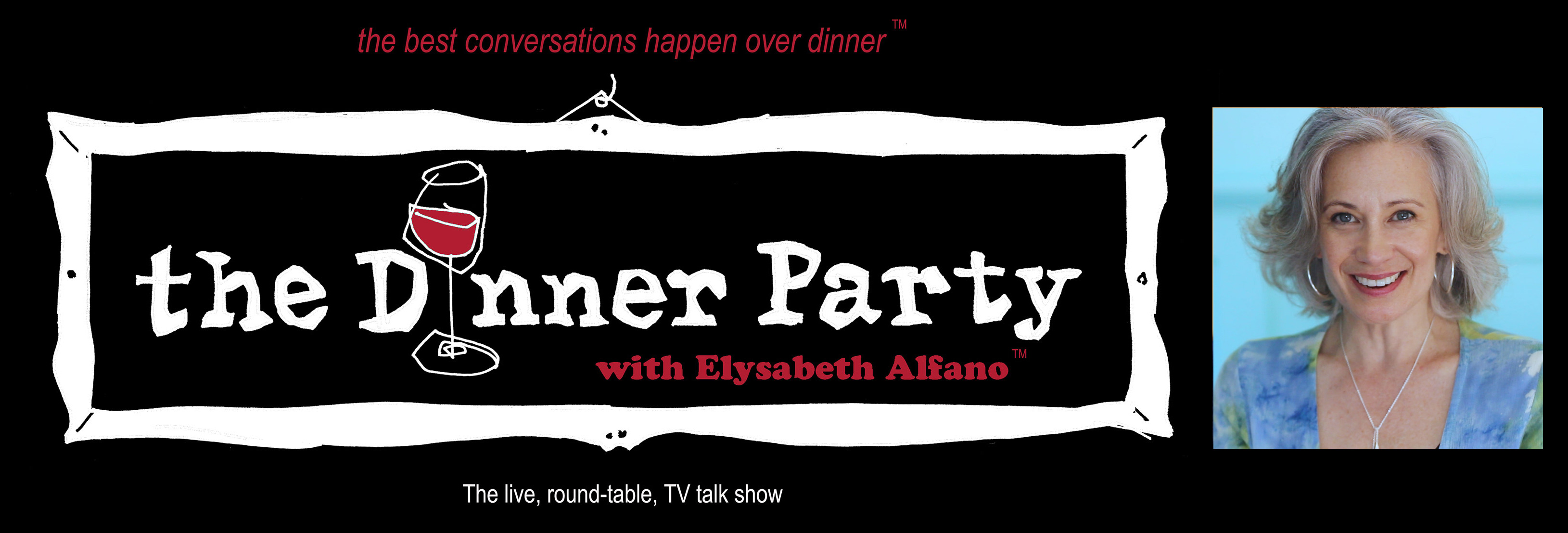Early Queer Short Films Revived
August 2nd, 2011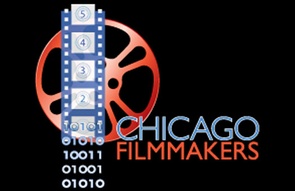 Chicago Filmmakers and Reeling: the Chicago Lesbian & Gay International Film Festival offer a rare screening of early queer shorts from 1965-1975 this Friday, August 5 at 8PM – all except two are shown on 16mm. These erotic, playful, and experimental images will make you question just what makes these films queer, besides the sex and homo-eroticism. You’ll have to look past the male bodies lain bare and the obvious performance of gay male desire to appreciate the quality of the human touch among gay men even when there’s no orgasmic pay off. These avant-garde films offer a respite from the many negative images perpetuated by movies at the time. The films mirror gays when they were otherwise underrepresented in the public’s consciousness.
Chicago Filmmakers and Reeling: the Chicago Lesbian & Gay International Film Festival offer a rare screening of early queer shorts from 1965-1975 this Friday, August 5 at 8PM – all except two are shown on 16mm. These erotic, playful, and experimental images will make you question just what makes these films queer, besides the sex and homo-eroticism. You’ll have to look past the male bodies lain bare and the obvious performance of gay male desire to appreciate the quality of the human touch among gay men even when there’s no orgasmic pay off. These avant-garde films offer a respite from the many negative images perpetuated by movies at the time. The films mirror gays when they were otherwise underrepresented in the public’s consciousness.
First in the line up is Cathedral by Ronald Chase (1972, 16mm). Three angelic twinks are lifted into heaven and then cast into the dark hollows of a cathedral lit by filtered purple and red stained glass. The boys create a trail of touch with the camera, drawing invisible lines across every inch of their unblemished bodies. Print held by Chicago Filmmakers
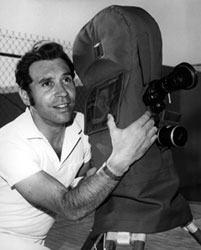 Yes (1968, Super 8 to video) by Pat Rocco follows a young brunette leather boy as he tramples a California forest where he discovers a sun-bathing blond like a “mermaid” perched on a boulder, an image John Cameron Mitchell reprised in Hedwig and the Angry Inch (2001). The film comes direct from Hawaii courtesy of Rocco himself, a living gay activist, singer, songwriter, theater director, and filmmaker (They Were There, 1976). Rocco was the original “Mack the Knife” and produced and directed Gershwin’s “Crazy Girl” and “Boys in the Band.” His first recording hit was “Too Darn Hot.” He was known for queering popular songs about heterosexual and recording them on the album “He Touched Me.”
Yes (1968, Super 8 to video) by Pat Rocco follows a young brunette leather boy as he tramples a California forest where he discovers a sun-bathing blond like a “mermaid” perched on a boulder, an image John Cameron Mitchell reprised in Hedwig and the Angry Inch (2001). The film comes direct from Hawaii courtesy of Rocco himself, a living gay activist, singer, songwriter, theater director, and filmmaker (They Were There, 1976). Rocco was the original “Mack the Knife” and produced and directed Gershwin’s “Crazy Girl” and “Boys in the Band.” His first recording hit was “Too Darn Hot.” He was known for queering popular songs about heterosexual and recording them on the album “He Touched Me.”
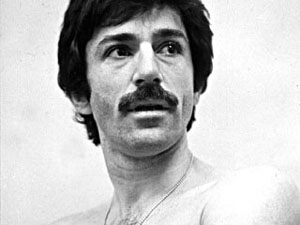 Peter DeRome‘s Underground (1972, Super 8 to video) is a guerrilla porn film that takes exhibitionism and a camera to the NYC subway to record a cruising encounter between a hairy hippie and a straight-laced, but risky businessman. Cruising is the stage whereby these two actors get dangerously close to being caught in the act by a sleeping elderly man. The film employs post-sync sound effects to mimic the subway rails moving in ecstasy. A woodpecker-knocking adds a bit of tongue-in-cheek to the subterranean fellatio. Post-coitus, the hippie opens a paper to a headline that reads “Is There No Sense of Decency?” Very appropriately, this print is held by Bijou Video.
Peter DeRome‘s Underground (1972, Super 8 to video) is a guerrilla porn film that takes exhibitionism and a camera to the NYC subway to record a cruising encounter between a hairy hippie and a straight-laced, but risky businessman. Cruising is the stage whereby these two actors get dangerously close to being caught in the act by a sleeping elderly man. The film employs post-sync sound effects to mimic the subway rails moving in ecstasy. A woodpecker-knocking adds a bit of tongue-in-cheek to the subterranean fellatio. Post-coitus, the hippie opens a paper to a headline that reads “Is There No Sense of Decency?” Very appropriately, this print is held by Bijou Video.
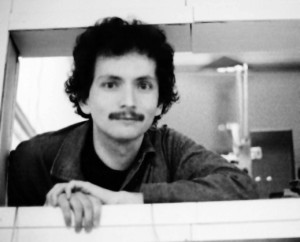 Oblivion by Tom Chomont (1969, 16mm) is one of over 40 films Chomont produced during his lifetime. This work pictures an ordinary portraiture of young man in various stages of undress in a bedroom interrupted by a circus of bright marquee lights. Images are shot in high contrast black and white but off-set by a luminescent color stock, creating a doubling effect that fades in and out like light bulb. This print is held by Film-Makers Cooperative in New York City.
Oblivion by Tom Chomont (1969, 16mm) is one of over 40 films Chomont produced during his lifetime. This work pictures an ordinary portraiture of young man in various stages of undress in a bedroom interrupted by a circus of bright marquee lights. Images are shot in high contrast black and white but off-set by a luminescent color stock, creating a doubling effect that fades in and out like light bulb. This print is held by Film-Makers Cooperative in New York City.
Jerovi (1965, 16mm) is a Narcissus story of an emperor or prince played by the director’s friend Jeroví Sansón Carrasco, who commissioned and financed the work. 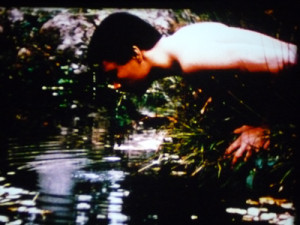 The man falls in love with his reflection and wriggles in a grassy field pleasuring himself. Jerovi was produced by Latin-American avant-garde filmmaker and theater producer Jose Rodriguez-Soltero who was a contemporary of counter-cultural icon and filmmaker Jack Smith (Flaming Creatures, Scorpio Rising, Hold Me While I’m Naked, or The Chelsea Girls). Rodriguez-Soltero’s films, Jerovi and Lupe (1966, 16mm) were preserved by the Warhol Foundation and restored by Anthology Film Archives. This print is also held by Film-Makers Cooperative.
The man falls in love with his reflection and wriggles in a grassy field pleasuring himself. Jerovi was produced by Latin-American avant-garde filmmaker and theater producer Jose Rodriguez-Soltero who was a contemporary of counter-cultural icon and filmmaker Jack Smith (Flaming Creatures, Scorpio Rising, Hold Me While I’m Naked, or The Chelsea Girls). Rodriguez-Soltero’s films, Jerovi and Lupe (1966, 16mm) were preserved by the Warhol Foundation and restored by Anthology Film Archives. This print is also held by Film-Makers Cooperative.
Bordering on a totally obscure spliced together found footage and home video recordings, Kunst (“Art” in German) Life Parts 1-3 (1975, 16mm) by Roger Jacoby will challenge your viewing capacity, but leaves a trace on the psyche for the few willing to welcome disunity. Look for the notable appearance by one of Andy Warhol’s superstar’s named Ondine, then boyfriend of Kunst’s director. Ondine appeared in Warhol’s Three, Couch, Vinyl, Restaurant, Afternooon, and The Pope Ondine Story. This print is held by Canyon Cinema in San Francisco.
The screening will take place at Chicago Filmmakers. Admission is $8 suggested donation. The screening will be introduced by Kevin John Bozelka, Visiting Professor of Media and Cinema Studies at DePaul University. For more information, please contact Chicago Filmmakers at 773-293-1447 or visit ChicagoFilmmakers.org.
